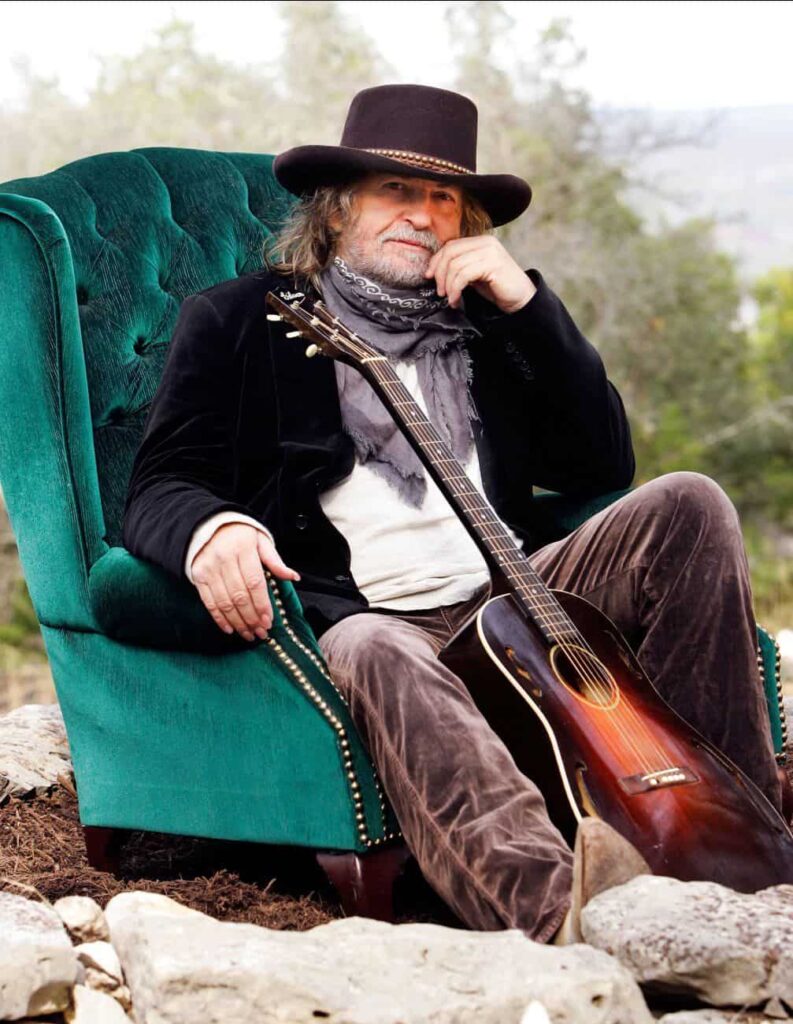
A haunting dialogue in the realm of sin and salvation: “Conversation With the Devil”
When you listen to Ray Wylie Hubbard’s Conversation With the Devil, you’re not just hearing a song — you’re entering an old man’s dream, a fiery tour through hell’s bureaucracy, and a soul wrestling with faith, hypocrisy, and redemption.
“Conversation With the Devil” was released on July 20, 1999, as part of Hubbard’s album Crusades of the Restless Knights. Although this deeply poetic and narrative song didn’t chart on mainstream national charts, it earned a very special recognition: in his own discography, Hubbard notes that it won Song of the Year at the 1999 Austin AMP Awards.
The Story Behind the Song
The song unfolds like a vivid, satirical parable, styled as a conversation between the narrator (a flawed, soulful songwriter) and the Devil himself. Hubbard, now a sage figure in the outlaw country and Americana world, draws from the well of his own life — mistakes, regrets, spiritual longing — to paint a picture of an overcrowded hell, inhabited by the sinners we’d expect… and by the sinners we’d rather not admit are sinners.
In his dream, the Devil greets him with wry humor:
“You won’t need no lightning rod … You’re not gonna need that leather jacket, it gets kinda warm … There’s one way in, no way out.”
The Devil then gives him a walking tour, pointing out the souls who’ve landed in torment: corrupt preachers, crooked politicians, compromised police officers, negligent parents, and even Nashville record executives. Hubbard uses this imagery to skewer not just individual vice, but institutional hypocrisy — pointing out that those who preach holiness sometimes commit the very sins they condemn.
In one of the most unforgettable lines, the narrator justifies his own faults:
“I didn’t use the cocaine to get high / I just liked the way it smelled.”
This twisted innocence in the face of vice is classic Hubbard: blunt, wry, deeply human.
Later, the conversation turns philosophical. The narrator asks: “Which religion is the truest?” The Devil’s surprising answer:
“They’re all about the same. … Buddha was not a Christian, but Jesus would have made a good Buddhist.”
It’s a gentle, almost mystical message: in his view, division and dogma are less important than the love, compassion, and sincerity behind faith.
When the narrator pleads for a second chance — perhaps through reincarnation — the Devil shrugs:
“It’s not any more unusual to be born twice than it is to be born once.”
It’s as if this journey through hell is not just a judgment, but a mirror — one that reflects our failings, our longings, and perhaps even our hopes.
The Meaning and Significance
For older listeners, especially those who have lived through decades of change, this song carries a deeply nostalgic resonance. It’s not just a story about damnation; it’s a meditation on morality, aging, and spiritual ambiguity. As Hubbard himself has said in interviews, with age comes a sharper awareness of mortality. The devil in his song may be a metaphor, but he also stands for time passing, for the relentless weight of regrets, and for the long shadows cast by our choices.
This song is especially powerful because it refuses simple moralizing. The Devil isn’t just a monster — he’s an ironic tour guide, part critic, part philosopher. By putting sinners in hell — and pointing out that some of the most sacred-seeming people don’t make the cut — Hubbard is raising uncomfortable questions about who deserves grace, and why.
At the same time, Hubbard doesn’t exempt himself. He confesses his own flaws honestly (“I made some mistakes, but I’m not as bad as those guys”), acknowledges his vices, and yet still seeks connection — through prayer, through love, through the innocent act of kissing his sleeping child in his dream. There’s humility here, yes, but also defiance — a refusal to accept easy answers.